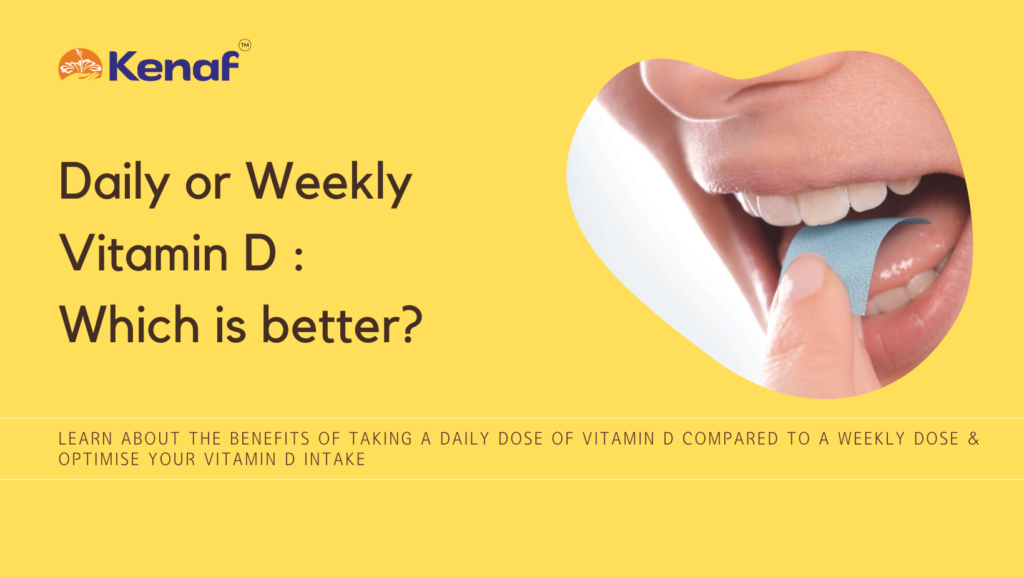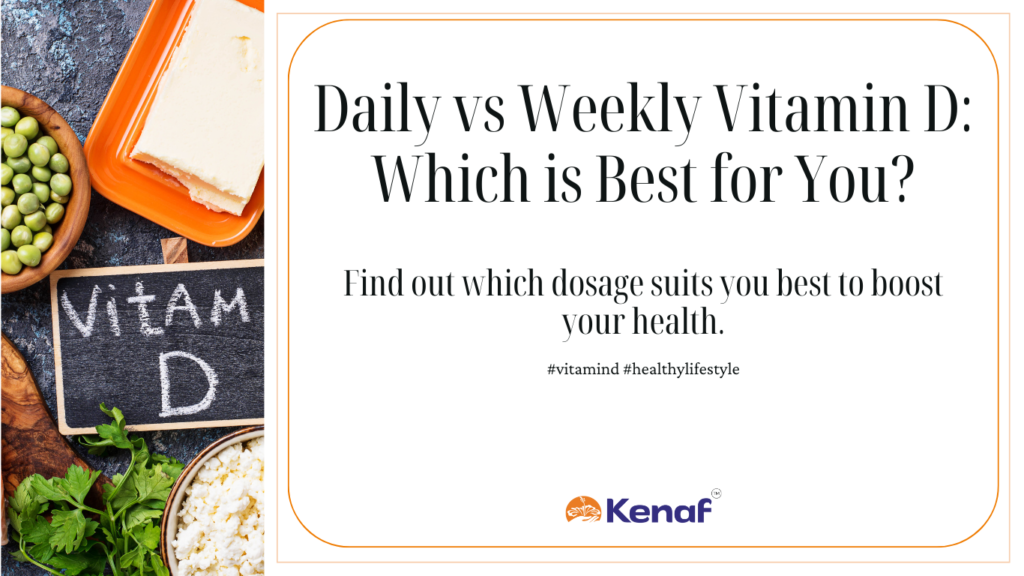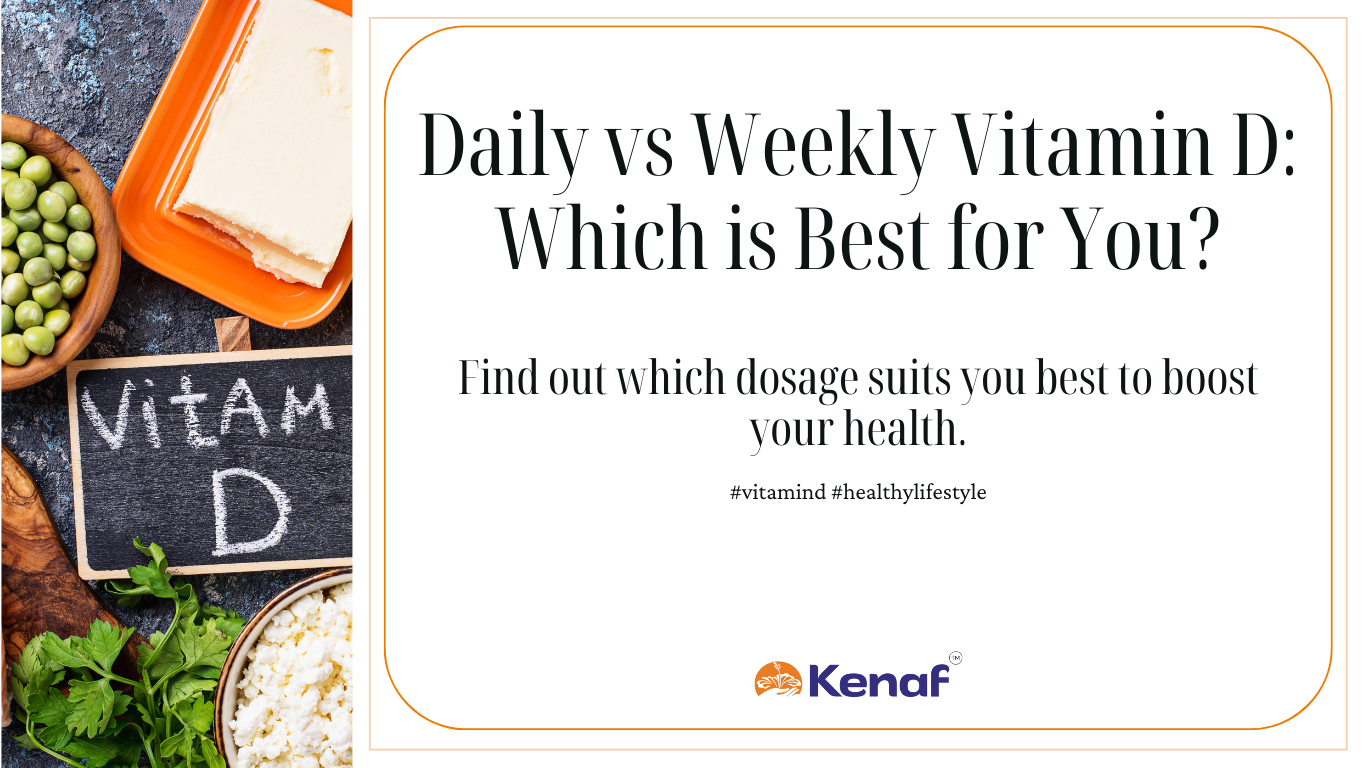
Unleashing the power of daily Vitamin D3 supplementation over higher D3 therapeutic doses : 7 vital Benefits and Safety
Vitamin D, commonly known as the “sunshine vitamin,” plays a vital role in maintaining and supporting overall health from bone, tooth, muscle, heart as well as immune health. For individuals seeking to meet their Vitamin D needs, the choice between daily supplementation or weekly high-dose intake (e.g., 60,000 IU) is an important one. In this blog, we’ll explore the benefits and safety considerations of daily Vitamin D supplementation compared to weekly high-dose supplementation.

Here are the benefits of Daily Vitamin D3 Supplementation:
Consistent Blood Levels: Daily Vitamin D supplementation provides a steady and consistent supply of this essential nutrient. This regular intake helps maintain stable blood levels, which can be especially crucial for those with specific health concerns or comorbidities.
Enhanced Absorption: Smaller daily doses may be often better absorbed by the body than large, infrequent doses. This can maximize the effectiveness of the supplement.
Reduced Risk of Side Effects: High-dose weekly supplementation poses an increased risk of exceeding safe Vitamin D levels in the body if consumed for longer duration and inappropriate dosages. Daily dosing with smaller amounts reduces this risk, making it safer in terms of avoiding Vitamin D toxicity.
Better Adherence: Incorporating a daily supplement into your routine is often more manageable, increasing adherence rates. People are more likely to remember and maintain this habit over time, leading to consistent Vitamin D intake.
Customization: Daily supplementation allows for easier customization of doses based on individual needs. Your clinical nutritionist / practitioner can help determine the appropriate daily dosage tailored to your unique circumstances, such as age, sun exposure, and underlying medical conditions.

While daily supplementation is safe to consume, regarding weekly high therapeutic dose here are some safety considerations:
Risk of Overdosing: Weekly supplementation with a high dose like 60,000 IU carries a higher risk of exceeding safe Vitamin D levels in the body if not taken under medical supervision, potentially leading to toxicity symptoms like nausea, vomiting, and kidney stones.
Inconsistent Blood Levels: Over the counter high-dose supplementation can cause fluctuations in blood levels, which may not be ideal for certain health conditions requiring stable Vitamin D levels.
Lower Absorption Efficiency: The body may not absorb a large weekly dose as efficiently as smaller daily doses, potentially leading to lower overall effectiveness.
Complexity of Customization: Adjusting doses based on individual needs can be more challenging with high-dose weekly supplements. This can make it harder to tailor supplementation to specific health requirements.
In the debate between daily Vitamin D supplementation and weekly high-dose intake, daily supplementation offers numerous benefits and greater safety for most individuals. While weekly supplementation might help to correct your Vitamin D levels, daily supplementation helps to maintain optimal levels to support overall health from bone, tooth, muscle, heart health as well as immune health. However, in both the cases, regular monitoring of Vitamin D levels atleast every 6 months through blood tests is crucial to ensure that supplementation is achieving the desired effect without causing harm.
Self Check your Vitamin D Risk: Click the link to know more
Ultimately, while weekly high-dose Vitamin D supplementation may have its place in certain medical scenarios, daily supplementation is generally a safer and more practical approach for most individuals seeking to maintain optimal Vitamin D levels and overall health.
Disclaimer:
Thank you for reading our blog. If you have any questions or concerns, please contact us through our website.
The information provided on this blog is for general informational purposes only. The information provided on this blog is not intended to be a substitute for professional medical advice, diagnosis, or treatment. Always seek the advice of your physician or other qualified health provider with any questions you may have regarding a medical condition. Never disregard professional medical advice or delay in seeking it because of something you have read on this blog.





I’m always interested in reading your posts. You have a lot of great insights.
Thank you for your valuable feedback. We look forward to welcoming you back to our website in the future and providing you with even more insightful and relevant content. If you ever have any questions or suggestions, please don’t hesitate to reach out to us.